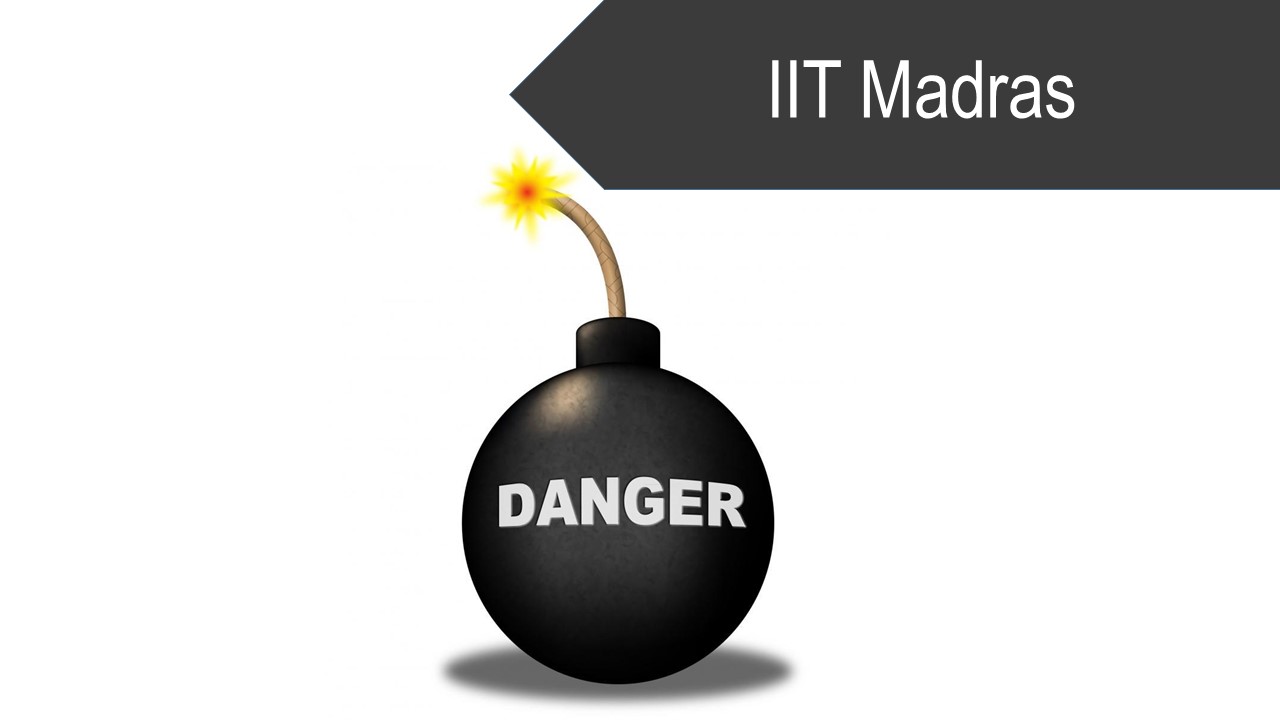
Course Overview
The course outlines various conditions for which disruption of things at the site of the explosion would occur and examples of the different categories of explosions. The role of blast waves and shock waves are deeply discussed in the course. The course concludes with quantification of damages, some basics of risk analysis, acceptable risks and use of Fault Tree and Event Tree analysis for predicting the probability of an explosion.
Duration = 2040 mins
Authors
Course Content
The courses in this category work well with Inte...
label
Syllabus
Serial Number
Topics...
label
Announcements
forum
1. Loud Bang and Disruption
resource
2. Blast Wave in an Explosion: Predictions from Dimensional Considerations
resource
3. Typical Examples of Explosions and Classification
resource
4. Shock Hugoniot and Rayleigh Line
resource
5. Properties behind a Constant Velocity Shock
resource
6. Blast waves:Concentration of Mass at the Front,Snow Plow Approximation,Energy conservation in a Blast wave
resource
7. Blast waves: Decay of a strong Blast wave,Explosion Length, Sach's Scaling,Over pressure,Cranz Hopkinson Scaling law of Overpressure
resource
8. Blast Waves: Overpressure and Impulse in the Near and Far Field, Examples,Introduction to Impulse
resource
9. Blast Waves: Non-dimensional Impulse, Cranz -Hopkinson Scaling, Missiles, Fragments and Shrapnel, Craters, Examples
resource
10. Blast Waves: Interaction with Objects, Reflection and Transmission of Blast Waves, Impedance
resource
11. Blast Waves: Amplification of Reflected Blast Waves; Role of Impedance, Spalling, Damage to Organs containing Air, Mushroom Cloud in an Explosion, Examples
resource
12. Blast Waves: Damage from Blast Waves, Examples, Multiple Spikes in an Impulse, Iso-damage Curve on an Overpressure- Impulse Diagram, Complex Structures
resource
13. Energy Release in a Chemical Reaction: Moles, Internal Chemical Energy, Standard Heats of Formation
resource
14. Energy Release: Stoichiometry, Equivalence Ratio and Heat Release in Fuel Rich and Oxidizer Rich Compounds
resource
15. Energy Release: Examples of Energy Release Calculations, Higher and Lower Calorific Values, Internal Energy of Formation
resource
16. Rate of Energy Release: Concentration, Activation Energy, Energy Release Profile
resource
17. Thermal Theory of Explosion
resource
18. Thermal Theory
resource
19. Role of Chain Carriers in an Explosion:
resource
20. Combustion -I
resource
21. Combustion - II
resource
22. Case Histories of Explosions involving Volatile Liquids
resource
23. Detonation
resource
24. Structure of Detonations
resource
25. Realizable States in a Detonation
resource
26. One Dimensional Model of Detonation
resource
27. Case Histories of Explosions involving Detonation or Quasi-Detonation
resource
28. Explosions in Confined and Unconfined Geometries
resource
29. Dust Explosions: I
resource
30. Dust Explosions: II
resource
31. Physical Explosions
resource
32. Rupture of Cryogenic Storage Vessels and Pressure Vessels
resource
33. Condensed Phased Explosives Based on Hydrocarbons
resource
34. Condensed Phase Explosives and their Properties
resource
35. TNT Equivalence and Yield of an Explosion
resource
36. Atmospheric Dispersion
resource
37. Modeling Atmospheric Dispersion
resource
38. Explosions Involving Atmospheric Dispersion
resource
39. Quantification of Damages in an Explosion
resource
40. Risk Analysis for an Explosion
resource
Assessment
quiz
Certificate
Simple Certificate
Announcements
forum
Note: Certificate is downloadable only on the next...
label
Course Features
Course Content
Course Badges
-
Completion Badge - Introduction to Explosions and Explosion Safety